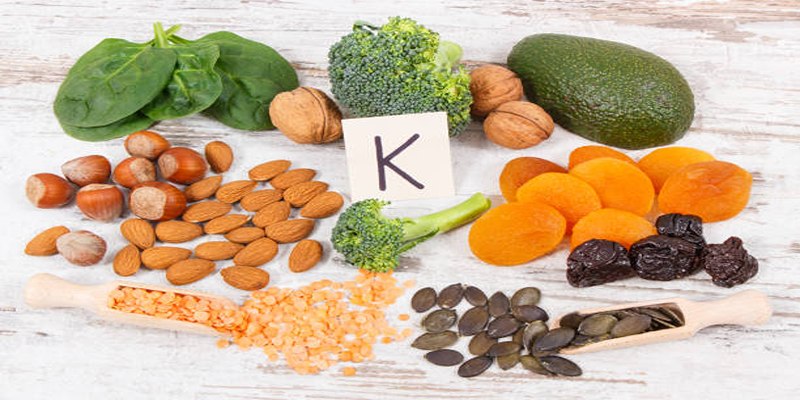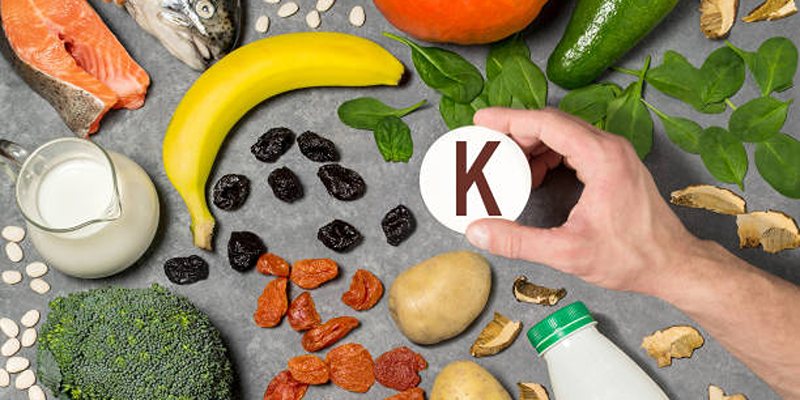Vitamin K is a fat-soluble vitamin that is ultimately necessary, which means it is significant in blood clotting, bones, and general well-being. Its levels in the body can be affected by different factors related to lifestyle and medical history, such as diet, medication, and some health conditions. It is imperative to understand these factors to ensure desirable levels of vitamin K to achieve better health.
Understanding Vitamin K and Its Importance

Vitamin K is a fat-soluble vitamin that exists in two primary forms:
- Vitamin K1 (Phylloquinone) -This is mainly contained in leafy green vegetables such as spinach, kale, and broccoli and it is associated mostly with blood clotting.
- Vitamin K2 (Menaquinone) - Made by intestinal bacteria and available in fermented foods such as natto and cheese, this one is beneficial to bones and the heart.
A deficiency in vitamin K can lead to excessive bleeding, weakened bones, and an increased risk of cardiovascular issues. Conversely, excessive intake—though rare—can interfere with certain medications.
Lifestyle Factors Affecting Vitamin K Levels
1. Dietary Habits
Diet is the most direct way to affect levels of vitamin K. Foods that are good source of vitamin K1 are:
- Leafy greens (kales, spinach, collard greens)
- Cruciferous vegetables (broccoli, Brussels sprouts)
- Herbs (parsley, basil)
Vitamin K2 is found in:
- Fermented foods (natto, sauerkraut)
- Dairy products (butter, cheese).
- Eggs and meat
Failure to get these foods in the diet can result in vitamin K deficiency. conversely, too much vitamin K in the diet may affect the efficacy of blood-thinning such as warfarin and needs to be closely monitored.
2. Gut Health and Microbiome Balance
Gut bacteria synthesize vitamin K2, thus dysbiosis (an imbalance of gut flora) may decrease its production. Things that kill gut bacteria include:
- Excessive consumption of antibiotics
- High-sugar diets
- Chronic stress
- Inadequacy of probiotic-containing foods (yogurt, kefir)
Supporting gut health through a fiber-rich diet and probiotics can enhance vitamin K2 production.
3. Fat Absorption and Digestive Health
Vitamin K is fat-soluble, meaning it requires dietary fats for proper absorption. Conditions that impair fat absorption can lead to deficiencies, such as:
- Low-fat diets
- Digestive disorders (celiac disease, Crohn’s disease)
- Gallbladder or liver dysfunction
Including healthy fats (avocados, nuts, olive oil) in meals can improve vitamin K uptake.
4. Physical Activity Levels
Exercise is one of the foundations of metabolic health, which indirectly can expand the use of vitamin K by the body. Overall, exercise is essential, especially weight-bearing exercises (walking, running, or weight training) to increase bone density. As vitamin K is considered to play an important role in bone health, as it helps to regulate calcium and promote bone mineralization, activity level can enhance its effectiveness.
Conversely, a sedentary lifestyle may also trigger slowing down of bone metabolism, decreasing calcium absorption as well as vitamin K action, making an individual prone to developing bones-related complications such as fractures or osteoporosis with time. Regular exercising is not only healthy in general but also essential to make the most out of vitamin K.
5. Sunlight Exposure
Although sunlight is the most often connected with the creation of vitamin D, it is also helpful in the general metabolism of nutrients, such as the effective use of vitamin K. Both vitamin D and vitamin K are needed to control the level of calcium in the body, and to make sure that calcium is deposited in bones and teeth, and not in the soft tissues. The lack of vitamin D, usually due to a lack of exposure to sunlight, may violate this balance, ruining the calcium metabolism and accidentally influencing the bone health where vitamin K is indispensable.
This synergetic relationship can be facilitated by making sure that you get enough sunlight (or using vitamin D supplements, as needed) which will result in stronger bones and better nutrient use. Therefore, the two vitamins are essential in the preservation of skeletal health.
Medical Factors Influencing Vitamin K Levels
1. Medications That Interfere with Vitamin K
Certain medications can disrupt vitamin K levels or function:
- Antibiotics – Kill beneficial gut bacteria that produce vitamin K2.
- Blood Thinners (Warfarin) – Work by inhibiting vitamin K-dependent clotting factors, requiring consistent dietary intake.
- Cholesterol-Lowering medicines (Statins) – May interfere with vitamin K2’s role in cardiovascular health.
Patients on these medications should consult their healthcare provider to monitor vitamin K levels.
2. Chronic Health Conditions
Several medical conditions impact vitamin K metabolism:
- Liver Disease – The liver produces clotting factors dependent on vitamin K; dysfunction can impair this process.
- Inflammatory Bowel Disease (IBD) – Conditions like Crohn’s disease reduce nutrient absorption, including vitamin K.
- Cystic Fibrosis – Affects fat absorption, leading to potential deficiencies.
Managing these conditions with medical supervision and dietary adjustments is crucial.
3. Age-Related Factors
- Newborns – Infants are often born with low vitamin K stores because this nutrient doesn't pass easily through the placenta during pregnancy. To prevent bleeding disorders such as vitamin K deficiency bleeding (VKDB), newborns are typically given a vitamin K injection shortly after birth. This is a critical step in safeguarding their health during the early days of life.
- Elderly Individuals – As people age, the diversity of gut bacteria, which plays a role in producing vitamin K2, tends to decline. This can lead to lower levels of this essential nutrient. Additionally, bone health becomes a significant concern for the elderly, as vitamin K helps regulate calcium and strengthen bone density. This makes maintaining an adequate intake of vitamin K even more important for reducing the risk of fractures and supporting overall health.
4. Surgical Procedures
Surgeries involving the digestive tract, such as bariatric surgery or bowel resections, can significantly affect the body's ability to absorb nutrients, including vitamin K. These procedures may alter the digestive system's ability to process fat, which is critical for the absorption of fat-soluble vitamins like vitamin K. Post-surgical nutritional support, including vitamin K supplementation, is essential to prevent deficiencies and support recovery, especially in cases where long-term nutrient absorption is impaired.
How to Maintain Optimal Vitamin K Levels

- Eat a Balanced Diet – Include plenty of leafy greens like spinach, kale, and broccoli, as these are rich sources of vitamin K. Fermented foods like natto and healthy fats such as avocado or olive oil can also help improve absorption by your body. Aim to incorporate these into your meals regularly.
- Support Gut Health – A healthy gut is essential for absorbing vitamin K effectively. Consuming probiotics from foods like yogurt, kefir, or kimchi, along with fiber-rich foods like fruits, vegetables, and whole grains, can help nurture beneficial gut bacteria that play a role in vitamin K production and absorption.
- Monitor Medications – Certain medications, such as blood thinners, and antibiotics can interfere with how your body uses vitamin K. It’s important to discuss these interactions with your doctor to maintain a balance and avoid potential health risks. They may adjust your dosage or provide specific dietary recommendations.
- Manage Underlying Health Conditions – Digestive or metabolic disorders, such as celiac disease, Crohn’s disease, or liver issues, can impair vitamin K absorption. Working with a healthcare provider to address these conditions can help ensure your body is able to process and use this essential nutrient effectively.
Conclusion
Vitamin K is essential for blood clotting, bone strength, and heart health, yet many factors—both lifestyle and medical—can influence its levels. By understanding these influences, individuals can take proactive steps to maintain adequate vitamin K through diet, gut health support, and medical guidance when needed.












